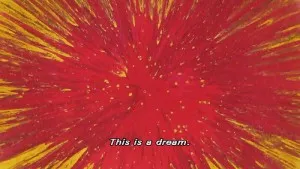Sweet Dreams Are Made of These
A random post on Facebook captured my attention. It said to imagine how wonderful it would be if a special kind of pillow were to be invented. These pillows could be connected to computers via USB ports. Upon waking, we could connect them to out laptops and watch our dreams. As Albert Einstein once said, “Imagination is more important than knowledge. For knowledge is limited to all we now know and understand, while imagination embraces the entire world, and all there ever will be to know and understand.” Science is all about converting that imagination to reality. Hence such musings don’t hurt but rather increase our yearnings to be able to view concretely those highly elusive things called dreams.

We humans have always been obsessed with our dreams. Long before Freud with his “The Interpretation of Dreams” turned our attention to the scientific psychological aspect of it in the 1900s. Storytellers and orators weaved dreams to be an intrinsic part of cultural narratives. Dreams were said to foretell the future, relays omens, warn of impending dooms and carry messages from the heavens. Freud of course was interested in the subconscious and how important a role it plays in our lives. His theories of dreams being an outlet for all our repressed sexual desires have largely been dismissed by modern psychologists. But these modernists are not any closer to coming up with an acceptable alternative version of why we dream the things we do. The argument that we dream what we think has the flimsiest of endorsements from science.

Professor Ernest Hartmann, Tufts University School of Medicine, has been fascinated by this subject for long and has some very interesting insights to offer. He views dreams to be a kind of in built therapy for the mind that has its roots in evolution. According to him, the early man lead radically different lives from the kind we lead today. Chronically faced with acute food shortage, constantly on the run from vicious animals, vulnerable to every kind of infectious disease or injury with no recourse or treatment- each day was a trauma to be dealt with. Dreaming was a way of escaping this turbulent life, while also replaying the ordeals they fought so hard to overcome. It went a long way in restoring precious mental balance. Those who succumbed to the horrors of their own mind were left behind while the fittest went on to survive with aplomb. We are the descendants of these toughies who dreamt not only to escape, but also to survive. According to Professor Hartmann, dreaming is embedded in our genes. Thus when we face harrowing ordeals of our own in the twenty first century, albeit much less fearsome than the prehistoric kind, our perseverance instincts kick in and we dream vivid dreams.

In support of the popular theory that we’ll dream what our mind or the subconscious is preoccupied with, renowned sleep researcher Rosalind D. Cartwright has the following to say, “Memory is never a precise duplicate of the original. It is a continuing act of creation. Dream images are the product of that creation.” Cartwright explains that despite the existence of varied modern theories on dream, they all have one thing in common. Dreams are never one dimensional, collecting stories from different parts of our lives and incorporating them in one single emotionally overcharged medium. This is referred to as affect. The purpose of dreams is to regulate the negative emotions and provide a healthy outlet for them, so that during waking hours we are not consumed with the tragedy of our lives. Another theory that she proposes is that dreaming is intrinsic to the formation of the “Self”.

The lives we lead have a number of different facets. We are different with each person we interact. The experiences we take home from these interactions also affect us differently. It is difficult to reconcile the personality to extreme prisms like these. When we sleep, the mind remains active, it sorts through the experiences of the day interpreting and incorporating our prisms into the threads of the dominant personality. Thus we can wake up fresh and active, at peace with our mind and connected to our souls. The experiences of yesterday, instead of producing more conflict, has enriched our existence. Of course this only holds true for conscientious sleepers who retire disciplined nocturnal rest. Night owls, insomniacs, people with lifestyles stretching into wee hours of the morning will not experience the benefit of the healing powers of dreaming. Though dissension exists regarding the causes and nature of dreams, virtually all studies will tell you that a good night’s rest is the prerequisite to knowledge retention, creativity, ideation and a horde of other cognitive benefits.


When quizzed about his sleeping habits. Napoleon once declared, “Six hours’ sleep for a man, seven for a woman, and eight for a fool.” This opinion he shared with other dictators of his ilk- Hitler, Stalin and Mussolini- who all depended on very little sleep in their bid to conquer the world. Albert Einstein, the Jewish man who fortunately managed to escape the fate Hitler had in store for him, had a very different view. He needed at least ten hours of sleep for competent performance during the day. German chronobiologist Till Roenneberg has conducted studies on thousands of patients and concludes that each of us have inherent body clocks to which we are instinctively fashioned. That is why some of us need to sleep for eight to ten hours and some function on four to five hours of sleep or less.
Since the beginning of time, society has been glorifying early risers and people who can function optimally on little or no sleep while shaming those, with liberally applied terminologies of laziness and gluttony, who need all the extra forty winks they can get. Sleeping less or more has nothing to do with how sincere or lazy we are, are much more with our age, physique, inherent genetic patterns and needs. The worst thing we can do for our bodies is to distort these habits in order to fulfill social expectations. The key to peaceful sleep and uninterrupted dreams is to heed the voice of the body and hear what it is saying. Optimal health, both in mind and body, is then guaranteed.







